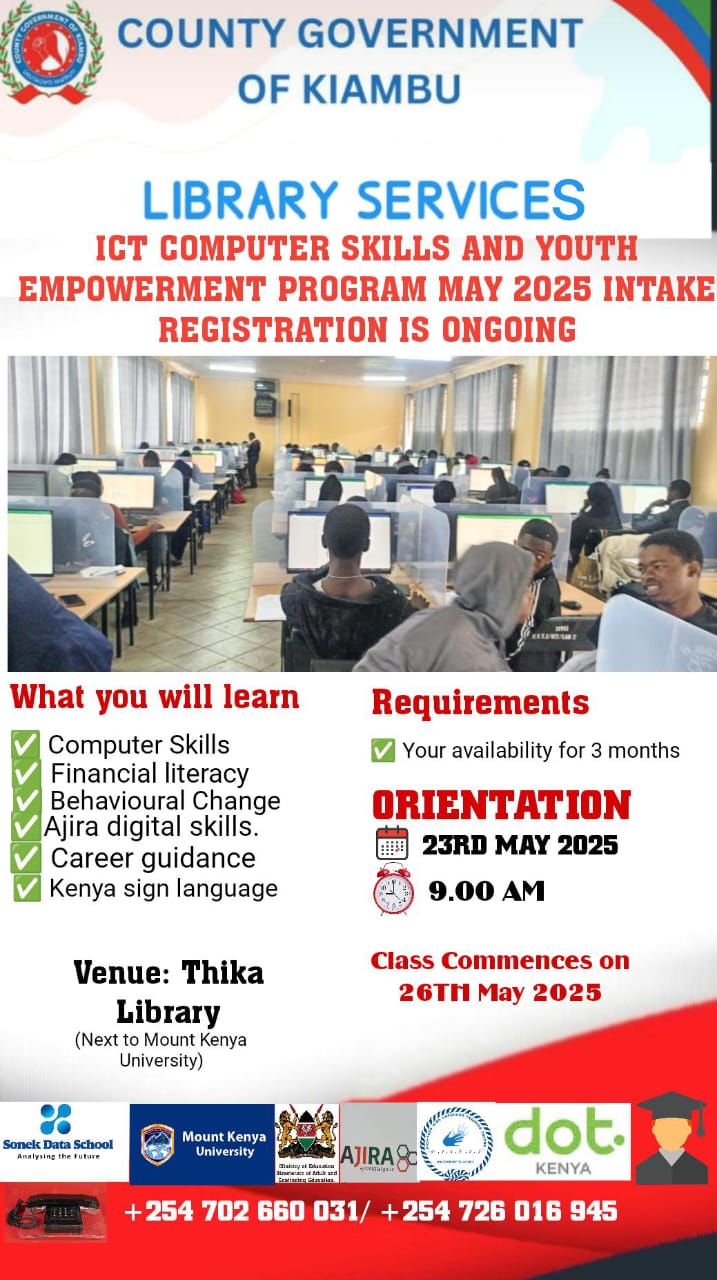Solarisation of boreholes set to save costs on power
By ESTHER KIHANYA
In the lush green landscapes of Kiambu County, access to clean water has always been a vital concern for the local communities. With the increasing demand for water supply, the Kikuyu Water and
Sanitation Company embarked on an innovative project to solarise boreholes in the region. Among these boreholes, Riu 2 was chosen as the pilot site for solarisation.
In July 2020, the solar project was officially commissioned, marking the beginning of a sustainable solution to the water supply challenges faced by the residents of Kiambu County. However, it is worth noting that while Riu 1 and Riu 2 boreholes shared one electricity meter, only Riu 2 borehole was solarised as part of the initial phase of the project.
Jane Murage, the Managing Director of the Kikuyu Water and Sanitation Company, emphasised the significance of this solarisation initiative. She highlighted the importance of conducting a comprehensive
cost-benefit analysis to evaluate the effectiveness of the solarisation project. According to her, the
results of the analysis were promising.
“A cost analysis pre and post-solarisation shows a cost saving of Kshs. 737,244 in an 8-month period.
This correlates to a 24 percent cost saving,” said Jane Murage.
The data collected over the 8-month period revealed substantial cost savings attributed to the
solarisation of the Riu 2 borehole. The savings were particularly noticeable during certain months, with December, January, and February showing the highest cost savings compared to July, August, and
September. This disparity in savings could be attributed to the varying weather conditions experienced
throughout the year.
“During the colder months, such as December, January, and February, the region experienced longer periods of sunshine, which maximised the efficiency of the solar panels. Conversely, the cloudier
weather during July, August and September resulted in lower solar energy production, leading to fewer cost savings during these months,” said the MD.
Despite these fluctuations, the overall cost savings achieved through solarisation was significant and demonstrated the economic viability of investing in renewable energy solutions for water supply infrastructure. The success of the Riu 2 solarisation project served as a testament to the potential
benefits of expanding similar initiatives to other boreholes in the region.
The positive outcomes of the solar project extended beyond just cost savings. By reducing the reliance on grid electricity, the project also contributed to mitigating environmental impact. Solar energy is a clean and renewable resource, which aligns with the goals of sustainable development and
environmental conservation.
Furthermore, the use of solar in boreholes enhanced the reliability and resilience of the water supply system. In areas prone to power outages or grid failures, solar-powered boreholes can continue operating autonomously, ensuring uninterrupted access to clean water for the communities they serve.
As the solarisation project proved to be a resounding success, the Kikuyu Water and Sanitation Company began exploring opportunities to replicate similar initiatives across other boreholes in Kiambu County.
By leveraging renewable energy technologies, such as solar power, the company aimed to enhance the efficiency, sustainability, and affordability of water supply services for all residents.
The county is taking proactive steps to reduce electricity bills by planning to drill boreholes and later solarise them.
Boreholes provide access to groundwater, offering a sustainable water source for the community. By harnessing solar energy to power these boreholes, the county can significantly cut down
on electricity costs while also promoting renewable energy use. This initiative not only benefits the
county financially but also contributes to environmental sustainability by reducing reliance on fossil
fuels.








